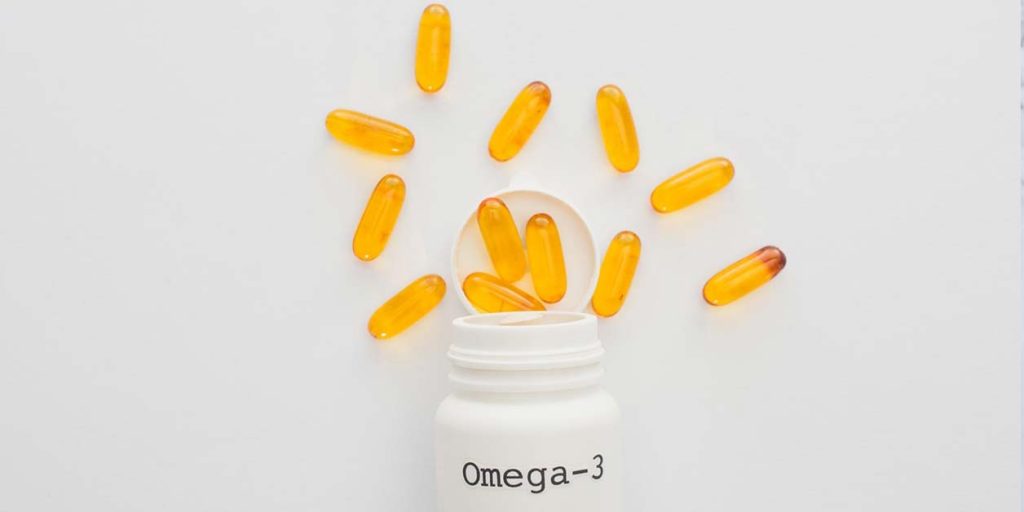Have you ever wondered why some foods make you feel relaxed and content, while others leave you feeling irritable and stressed? The answer lies in the levels of serotonin in your brain. In this article, we will explore the role of tryptophan, an essential amino acid, in regulating serotonin levels and its impact on our overall well-being. Understanding this connection is crucial in maintaining a healthy mind and body.
What is Tryptophan?
Tryptophan is an essential amino acid that cannot be produced by our bodies, therefore it must be obtained through our diet. This nutrient plays a crucial role in the synthesis of serotonin, a neurotransmitter responsible for regulating mood, appetite, and sleep.
Foods rich in tryptophan include:
- turkey
- chicken
- eggs
- nuts
- seeds
Once consumed, our bodies convert tryptophan into serotonin, which can have positive effects on mood and promote feelings of calmness and well-being. So, for those wondering “What is Tryptophan?”, it is a vital nutrient that can greatly impact our brain chemistry and overall mental health.
How Does Tryptophan Affect Serotonin Levels?
Tryptophan is an essential amino acid that plays a crucial role in the production of serotonin. Understanding the impact of tryptophan on serotonin levels is crucial in managing mood, sleep, and overall well-being.
- Tryptophan is obtained through diet, specifically from protein-rich foods such as turkey, chicken, dairy, and nuts.
- Once consumed, tryptophan enters the bloodstream and competes with other amino acids to enter the brain.
- Tryptophan crosses the blood-brain barrier and is converted into 5-hydroxytryptophan (5-HTP).
- 5-HTP is then converted into serotonin, a neurotransmitter responsible for regulating various functions in the brain.
- Increasing tryptophan intake can boost serotonin synthesis, potentially promoting mood stability and relaxation.
What is Serotonin?
Serotonin is a crucial neurotransmitter that plays a vital role in regulating mood, appetite, sleep, and other important bodily functions. Commonly known as the “feel-good” chemical, it contributes to feelings of well-being and happiness. Serotonin is produced in both the brain and gastrointestinal tract, and low levels of it have been linked to conditions such as depression and anxiety. Increasing serotonin levels can have a positive impact on overall mental health and well-being. Some natural ways to boost serotonin levels include:
- Exercising
- Getting exposure to sunlight
- Consuming foods that are rich in tryptophan, an amino acid that serves as a precursor to serotonin production
How is Serotonin Produced?
Serotonin is produced through a multi-step process in the body. Here are the steps involved in the production of serotonin:
- Tryptophan absorption: Tryptophan, an essential amino acid, is obtained through dietary sources.
- Tryptophan transport: Tryptophan is transported from the bloodstream into the brain.
- Tryptophan hydroxylase: Tryptophan is converted into 5-hydroxytryptophan (5-HTP) by the enzyme tryptophan hydroxylase.
- Aromatic L-amino acid decarboxylase: 5-HTP is further converted into serotonin by the enzyme aromatic L-amino acid decarboxylase.
- Storage in vesicles: Serotonin is stored in vesicles within neurons, ready to be released when needed.
- Release and binding: Upon neuronal stimulation, serotonin is released into synapses and binds to serotonin receptors on target cells.
- Reuptake: Serotonin is reabsorbed by the presynaptic neuron through the serotonin transporter for recycling or degradation.
What are the Benefits of Tryptophan on Serotonin Levels?
Increasing intake of tryptophan can have numerous benefits on serotonin levels, resulting in improved mood, sleep quality, and overall mental well-being. As an essential amino acid, tryptophan serves as a precursor for serotonin production in the brain. By elevating tryptophan levels, the synthesis of serotonin is enhanced, leading to better regulation of emotions, reduced anxiety, and increased feelings of happiness.
Foods rich in tryptophan, such as turkey, eggs, and nuts, can naturally boost serotonin levels. In cases where dietary intake is insufficient, tryptophan supplements can also be effective. However, it is crucial to consult with a healthcare professional before starting any new supplement regimen.
Can Tryptophan Help with Depression?
Tryptophan, an essential amino acid, plays a crucial role in the production of serotonin, a neurotransmitter that has a significant impact on mood and emotions. Studies have shown that supplementing with tryptophan may have potential benefits in treating depression by increasing levels of serotonin. However, further research is necessary to determine its effectiveness.
Tryptophan can be naturally found in foods such as turkey, chicken, eggs, and nuts. Although tryptophan supplements are available, it is important to consult with a healthcare professional before starting any new treatment, particularly if you are pregnant, taking medications, or have any preexisting medical conditions.
Does Tryptophan Improve Sleep?
Tryptophan, an essential amino acid found in certain foods, plays a crucial role in the production of serotonin, a neurotransmitter that helps regulate sleep.
Consuming tryptophan-rich foods, such as turkey, dairy products, and nuts, may potentially improve sleep quality by increasing serotonin levels. However, the effects of tryptophan on sleep may vary for each individual. It is important to note that tryptophan alone may not be a sufficient treatment for sleep disorders. Maintaining a healthy lifestyle, establishing a regular sleep schedule, and seeking personalized advice from a healthcare professional are recommended.
Pro-tip: Incorporating tryptophan-rich foods into your evening meal may aid in achieving a better night’s sleep.
Can Tryptophan Help with Anxiety?
Tryptophan, an essential amino acid, has been found to play a crucial role in serotonin production, potentially aiding in the alleviation of anxiety. Serotonin is a neurotransmitter that is associated with regulating mood and reducing anxiety. By aiding in the synthesis of serotonin, tryptophan may have a calming effect.
While research is still ongoing, some studies suggest that tryptophan supplementation may be beneficial in managing anxiety. Natural sources of tryptophan can be found in foods such as turkey, chicken, nuts, seeds, and dairy products. It is important to consult a healthcare professional before starting any supplementation.
One true story is that of Sarah, who found relief from her anxiety symptoms by incorporating tryptophan-rich foods into her diet.
Does Tryptophan Aid in Weight Loss?
Can Tryptophan Aid in Weight Loss? Tryptophan may play a role in promoting satiety and regulating appetite, potentially assisting in weight loss. This amino acid is converted into serotonin when consumed, which can help control mood and appetite. By influencing feelings of fullness and reducing cravings for unhealthy foods, serotonin may aid in weight loss efforts.
Foods high in tryptophan, such as turkey, chicken, nuts, and seeds, can be incorporated into a well-balanced diet to support weight loss. However, it’s important to note that weight loss is a complex process influenced by multiple factors, and tryptophan alone is not a magical solution. A healthy lifestyle, including regular exercise and a well-rounded diet, is essential for sustainable weight loss.
Fun fact: Tryptophan is also responsible for the drowsiness often experienced after indulging in a Thanksgiving turkey feast.
What are the Sources of Tryptophan?
Tryptophan is an essential amino acid that our bodies cannot produce on their own. To increase serotonin levels, it is important to consume foods that are rich in tryptophan. Some sources of tryptophan include:
- poultry
- meat
- fish
- eggs
- dairy products
- nuts
- seeds
- legumes
By incorporating these foods into your diet, you can help boost serotonin production and promote overall well-being. Additionally, consuming carbohydrates along with tryptophan-rich foods can enhance its absorption and availability to the brain. So, the next time you’re looking to increase your serotonin levels, consider adding tryptophan-rich foods to your meals.
What Foods are High in Tryptophan?
Foods high in tryptophan include:
- turkey
- chicken
- salmon
- tofu
- eggs
- nuts
- seeds
These foods are excellent sources of this essential amino acid, which is a precursor to serotonin production. Tryptophan plays a crucial role in regulating mood, sleep, and appetite by increasing serotonin levels in the brain.
Furthermore, dairy products such as milk and cheese, as well as bananas and spinach, also contain tryptophan. Incorporating these tryptophan-rich foods into your diet can promote overall well-being and improve sleep quality.
Fun Fact: Did you know that tryptophan is also responsible for the drowsiness often experienced after a large Thanksgiving meal?
Are There Tryptophan Supplements?
Yes, there are supplements available in the market that contain tryptophan. Tryptophan is an essential amino acid that is necessary for the production of serotonin, a neurotransmitter responsible for regulating mood, sleep, and appetite. While tryptophan can be found naturally in certain foods such as turkey, eggs, and dairy products, some individuals may opt to take tryptophan supplements to ensure they have enough in their system. These supplements are typically sold in capsule or tablet form and can be purchased from health food stores or online retailers. It is important to consult with a healthcare professional before starting any new supplements to determine the appropriate dosage and ensure it is safe for your specific needs.
What are the Risks and Side Effects of Tryptophan?
Tryptophan supplements are generally considered safe for most individuals when taken in appropriate doses. However, some people may experience certain risks and side effects, including digestive issues such as nausea, vomiting, and diarrhea. In rare cases, tryptophan supplementation has been linked to a condition known as eosinophilia-myalgia syndrome (EMS), which can be severe and potentially life-threatening. It is important to consult with a healthcare professional before taking tryptophan supplements to understand individual risks and determine the proper dosage.
In 1989, an outbreak of EMS in the United States was linked to tryptophan supplements. As a result, the FDA banned the sale of these supplements, causing a decline in their popularity. However, it was later discovered that contamination during the manufacturing process was the root cause of the outbreak. Tryptophan supplements have since been reintroduced to the market with improved safety regulations in place.
Can Tryptophan Interact with Medications?
Tryptophan may have an impact on serotonin levels, which can potentially interact with certain medications. This is especially important to note for medications such as selective serotonin reuptake inhibitors (SSRIs), commonly used to treat depression and anxiety, which work by increasing serotonin levels. Combining tryptophan supplementation with these medications could lead to excessive serotonin levels and a condition known as serotonin syndrome. To ensure safety and avoid potential interactions, it is crucial to consult with a healthcare professional before taking tryptophan alongside any medications.
Pro-tip: Always inform your healthcare provider about any supplements you are taking to prevent potential complications.
Are There Any Risks for Pregnant Women?
Pregnant women should exercise caution when considering the use of tryptophan supplements. While tryptophan is generally safe when obtained through food sources, there is insufficient evidence to determine its safety in supplement form during pregnancy. Consult with a healthcare provider before taking any supplements while pregnant. It is crucial to prioritize the health and well-being of both the mother and the developing fetus. Additionally, it is important to consider any potential risks for pregnant women before taking any supplements.
What are the Possible Side Effects of Tryptophan?
Tryptophan, an essential amino acid, may have potential side effects. Although it is generally considered safe, some individuals may experience mild symptoms such as nausea, stomach discomfort, and loss of appetite. In rare cases, there have been reports of a serious condition known as eosinophilia-myalgia syndrome (EMS) associated with tryptophan supplements. Symptoms of EMS include muscle pain, weakness, and skin rash. It is important to consult with a healthcare professional before taking tryptophan supplements, especially if you have any pre-existing medical conditions or are taking other medications.
Overall, while tryptophan can have beneficial effects on serotonin levels, it is crucial to be aware of the potential side effects.
Frequently Asked Questions
What is the role of tryptophan in serotonin production?
Tryptophan is an essential amino acid that is converted into serotonin, a neurotransmitter that regulates mood, sleep, and appetite. Without enough tryptophan, the body cannot produce adequate levels of serotonin, leading to potential mood disorders and other health issues.
How does tryptophan affect serotonin levels in the brain?
Tryptophan is the precursor to serotonin, meaning it is the building block that the body uses to make serotonin. When we consume tryptophan-rich foods, it gets converted into serotonin, thus increasing the levels of this important neurotransmitter in the brain.
Can taking tryptophan supplements improve serotonin levels?
While tryptophan is necessary for serotonin production, simply taking tryptophan supplements may not necessarily result in increased serotonin levels. Other factors, such as the body’s ability to absorb and utilize tryptophan, also play a role in serotonin production. Consult with a healthcare professional before taking any supplements.
Are there any side effects of increasing serotonin levels with tryptophan?
Tryptophan is generally considered safe and does not have any known side effects when consumed through food sources. However, high doses of tryptophan supplements may cause side effects such as nausea, vomiting, and diarrhea. It is important to follow recommended dosages and consult with a healthcare professional.
How does serotonin affect mental health?
Serotonin is a key neurotransmitter involved in mood regulation, sleep, and appetite. Imbalances in serotonin levels have been linked to mood disorders such as depression and anxiety. Increasing serotonin levels through the consumption of tryptophan-rich foods or supplements may potentially improve symptoms of these disorders.
What are some food sources of tryptophan?
Tryptophan is found in a variety of protein-rich foods such as poultry, eggs, dairy products, and seafood. It is also found in plant-based sources like tofu, soybeans, and pumpkin seeds. Incorporating these foods into your diet may help increase tryptophan levels and support serotonin production.







